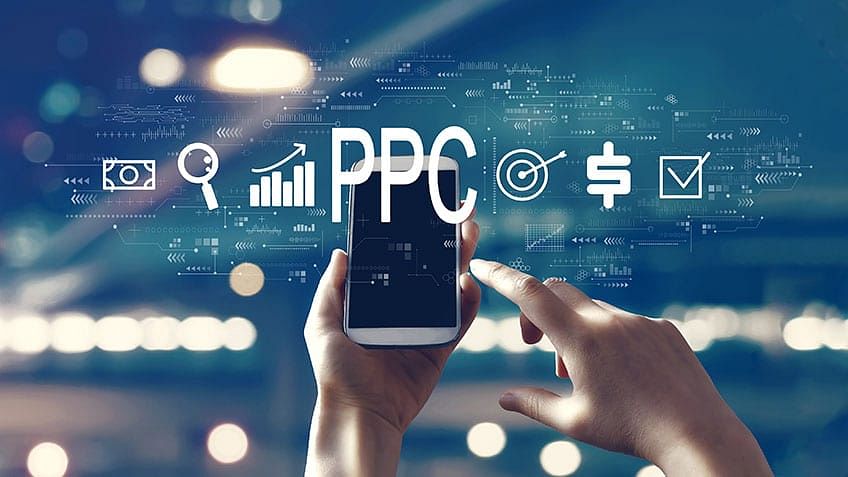If you've heard about PPC marketing and are eager to know more about it, or if you know that you'd like to utilize PPC Advertising Services to promote your business but aren't exactly sure where to begin, then you've come to the right location! This is the first course at PPC University, which is a set of three guided classes that will show you all you must learn about PPC and how you can get it to work for you In the beginning, we'll have to establish the definition of PPC and develop a fundamental understanding of the way PPC advertising functions.
What is PPC?
PPC refers to pay-per-click, a form of online marketing wherein marketers pay a cost each time an ad is clicked. In essence, it's a means of acquiring visitors to your website instead of trying to "earn" those visits organically. Search engine marketing is one of the most popular types of PPC Advertising Services. Advertisers can place ads in the search engine's sponsored links when a user searches for the keyword associated with their company's offerings.
For instance, if we bid on the term "PPC software," our advertisement could appear at the top of the list on Google's Google result page. Every time our advertisement clicks, bringing a person to our site, we must make a tiny amount. If PPC runs properly, it is not a big deal, as each visit is worth more than the amount you are paying. Also, when we pay $3 per click and that click is rewarded with a sale of $300, we've made a huge revenue.
There are many steps involved in creating the perfect PPC campaign. From researching and selecting the most appropriate keywords, organizing the keywords into well-organized campaigns and groups, and establishing PPC landing pages optimized for conversions, Search engines reward marketers who design relevant, well-targeted pay-per-click ads by charging less per click. If your advertisements and landing pages prove helpful and pleasing to users, Google charges you less per click, which means greater profits for your company.
What is Google AdSense?
Google Ads is the single most well-known PPC advertising platform around the globe. The Ads platform allows businesses to make ads displayed on Google's search engine and various other Google properties. OxourSEO operates on a pay-per-click basis, where users compete for keywords and pay for every click they make on their ads. Each time a search is started, Google digs into the collection of ads from advertisers before deciding which ones to display in the highly-priced ad space on the pages of search results on of ads from advertisers before deciding which ones to display in the highly-priced ad space on the pages of search results.
The "winners" are chosen based on a mix of factors, such as the relevancy and quality of their keywords and ads and the number of their keyword bids. An advertiser's rank determines the criteria for who is eligible to be featured on the site. This metric is determined by multiplying two crucial elements, namely the CPC bid (the highest amount that an advertiser is willing to invest) and the quality score (a number that considers the rate of your clicks, their relevance, and the quality of your landing page).
This system permits winning advertisers to connect with potential customers at a price within their budget. It's an auction. Conducting PPC marketing via Google Ads is particularly valuable since, as the most used web search engine, Google has many users and consequently gives your advertisements the highest amount of impressions and clicks. The frequency with which your PPC ads show up depends on the search terms and match types you choose, you can accomplish a lot by focusing on the following:
Keyword Relevance:
High-Quality Landing Pages:
Quality Score:
Creative:
A copy that is attractive is crucial. If it's a display ad, you could utilize a program like the Free Smart Ads Creator to design high-end ads that require more clicks.
PPC Keyword Research:
Researching keywords for PPC is time-consuming; however, it's also vital. The PPC strategy is planned around a keyword, and the most effective Google Ads advertisers continuously grow and enhance their PPC keyword lists. If you conduct keyword research once when you launch the first PPC campaign, you're likely to be missing thousands of relevant low-cost, long-tail, high-quality keywords leading traffic to your website.
A successful PPC keyword list must consist of:
Relevant:
Comprehensive:
Expansive:
HTML0 Expansive PPC is a continuous process. You must constantly improve and broaden your campaigns and create a space where your keyword list will continue to grow and change.
Managing Your PPC Campaigns:
After you've designed your campaigns, it is important to oversee them regularly to ensure they're still efficient. You must constantly be analyzing your account's performance and making the necessary changes to improve your marketing campaigns. Incorporate PPC Keywords: Enhance the potential reach of the PPC campaigns by including keywords that relate to your business.
Include Negative Keywords:
Divided Ad Groups:
Refine your landing pages:
Modify your pages' content and calls-to-action (CTAs) to align with the specific searches to increase conversion rates. Do not direct all traffic to the same site.



No comments:
Post a Comment